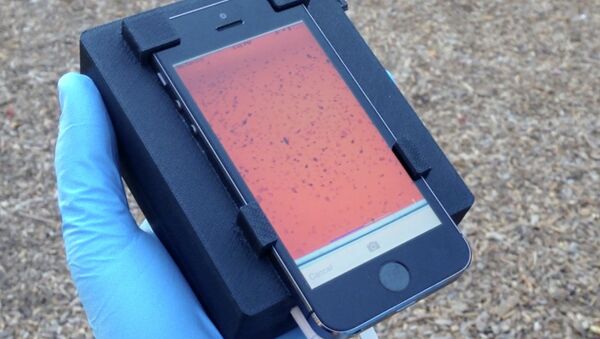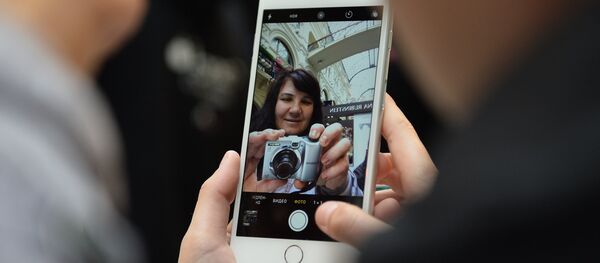The sperm counter uses a tool common to many smartphone applications — a camera. The phone camera is crucial for the new attachment to work.
In fact, the attachment is basically a lens that turns your camera into a microscope. Once you load a certain amount of sperm onto a disposable chip, you simply insert the chip into the attachment and start the app, which will do the analysis and count for you.
No, you will not need to clean your phone later.
Low sperm count is one of the indicators of male infertility. Currently, detecting male infertility requires equipment worth about $100,000 and a trained technician.
According to Hadi Shafiee, an assistant professor at Harvard Medical School, the team of researchers aimed to develop a cheap disposable test that would be as commonplace and easy to use as pregnancy test are today.
"We wanted to see what happens when this is operated by an untrained user with no scientific background," Shafiee told reporters.
While his team is reportedly not the first to develop a male fertility test, they are the first to create a tool to measure additional parameters, such as sperm concentration and motility.
Compared to lab equipment, the device in conjunction with the app allowed for 98 percent successful infertility identification. The results of the study were published in the journal Science Translational Medicine on Wednesday.
The device, which currently costs about $5 to make, is designed for use with Android phones, but the team looks forward to making an iPhone-compatible one, too.
After getting approval by the US Food and Drug Administration, Shafiee will seek to establish production and sales of the device, which is expected to cost about $50 in retail.




